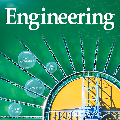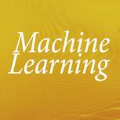The application of Artificial Intelligence (AI) to synthetic biology will provide the foundation for the creation of a high throughput automated platform for genetic design, in which a learning machine is used to iteratively optimise the system through a design-build-test-learn (DBTL) cycle. However, mainstream machine learning techniques represented by deep learning lacks the capability to represent relational knowledge and requires prodigious amounts of annotated training data. These drawbacks strongly restrict AI's role in synthetic biology in which experimentation is inherently resource and time intensive. In this work, we propose an automated biodesign engineering framework empowered by Abductive Meta-Interpretive Learning ($Meta_{Abd}$), a novel machine learning approach that combines symbolic and sub-symbolic machine learning, to further enhance the DBTL cycle by enabling the learning machine to 1) exploit domain knowledge and learn human-interpretable models that are expressed by formal languages such as first-order logic; 2) simultaneously optimise the structure and parameters of the models to make accurate numerical predictions; 3) reduce the cost of experiments and effort on data annotation by actively generating hypotheses and examples. To verify the effectiveness of $Meta_{Abd}$, we have modelled a synthetic dataset for the production of proteins from a three gene operon in a microbial host, which represents a common synthetic biology problem.
翻译:人工智能(AI)应用于合成生物学将为创建高吞量自动基因设计平台奠定基础,该平台将使用学习机器,通过设计-建设-测试-学习(DBTL)周期,对系统进行迭接优化;然而,以深层次学习为代表的主流机器学习技术缺乏代表关系知识的能力,需要大量附加说明的培训数据。这些缺陷严重限制了AI在合成生物学中的作用,在合成生物学中,实验是内在资源和时间密集的。在这项工作中,我们提议建立一个自动生物设计工程框架,由阿卜杜丁-理论学习(Meta-Abd}$)授权,这是一种新型机器学习方法,将象征性和亚正义机学习结合起来,以进一步加强DBTL循环,使学习机器能够(1) 利用域知识,学习由一等正式语言表达的人类互动模型;(2) 同时优化模型的结构和参数,以作出准确的数字预测;(3) 降低数据实验和努力的成本,将象征性和亚马基质机机机机学习结合起来。





